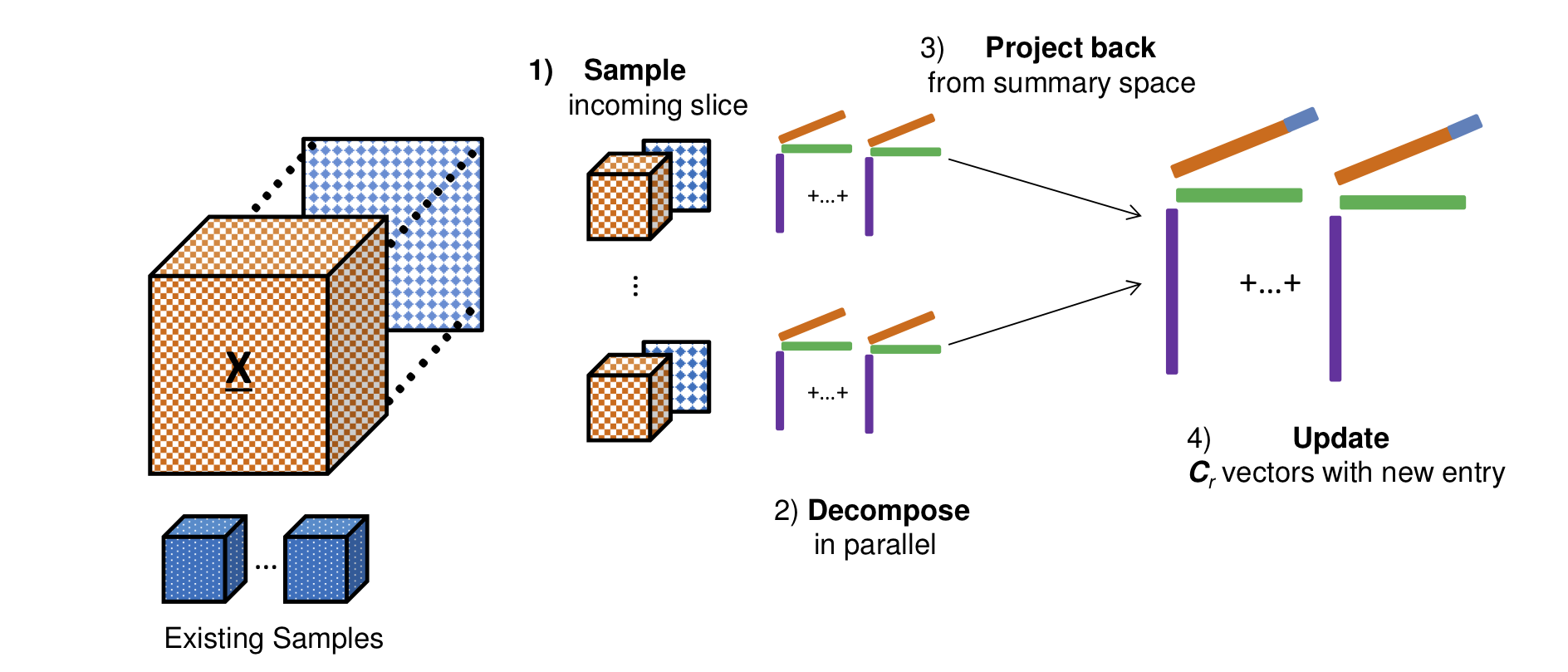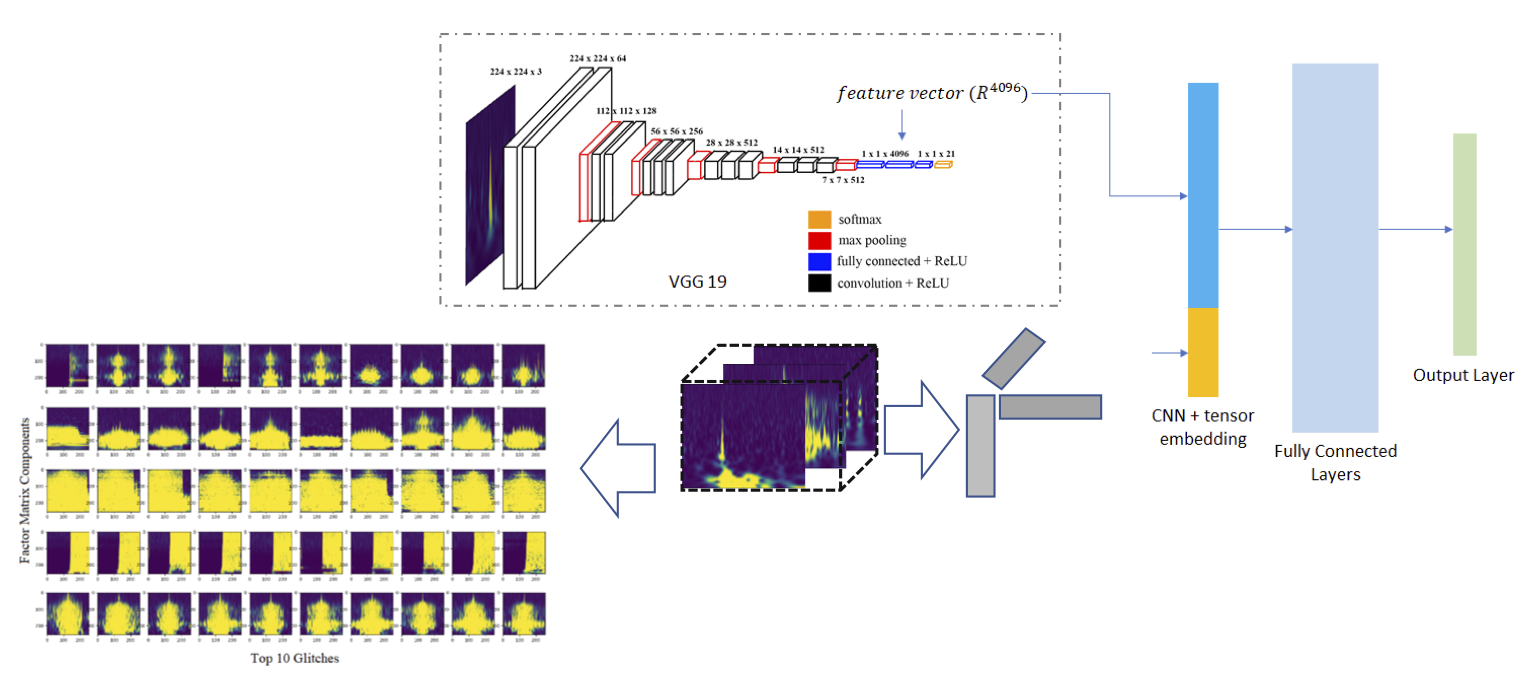Go to Members, Research Projects, Funding support, Contact.
Lab members
Current Members
PhD students
- Rutuja Gurav
- Dawon Ahn
- Miguel Gutierrez
- Yunshu Wu (co-advised with Greg Ver Steeg)
- Taghreed Alanazi (co-advised with Srikanth Krishnamurthy)
- Het Patel (co-advised with Jia Chen)
- Yiran Luo
Faculty Director
PhD alumni
- William Shiao (now at Atlas)
- Uday Singh Saini (now at VISA Research)
- Yorgos Tsitsikas
- Ravdeep Pasricha (now at Microsoft)
- Ghazal Mazaheri (co-advised with Amit Roy-Chowdhury)
- Sara Abdali (now at Georgia Tech)
- Negin Entezari (now at Amazon)
- Ekta Gujral (now at Walmart Global Technology)
- Pravallika Devineni (now at Duke Energy Corporation)
Full list of all members
A full list can be found here.Go to top
Go to Members, Research Projects, Funding support, Contact.
Research Projects
Our research broadly spans the areas of data science, signal processing, machine learning, and artificial intelligence. The overarching theme of my work has been the design and development of models and algorithms that can extract actionable and interpretable insights from multi-aspect/multi-modal data, typically with very little or no supervision. A major focus of our work has been on the development and advancement of tensor methods and their applications in high-impact real-world problems.This section is constantly under construction. For the most up-to-date view of different projects, make sure to check out our publications. Below is a sample of past and on-going projects.
Robust, Scalable, & Streaming Tensor Methods

Selected Publications:
- Ekta Gujral, Evangelos E. Papalexakis OnlineBTD: Streaming Algorithms to Track the Block Term Decomposition of Large Tensors IEEE International Conference on Data Science and Advanced Analytics (DSAA) 2020, Sydney, Australia Paper
- Ekta Gujral, Georgios Theocharous, Evangelos E. Papalexakis, SPADE: Streaming PARAFAC2 DEcomposition for Large Datasets SIAM SDM 2020, Cincinnati OH, Paper
- Ravdeep Pasricha, Ekta Gujral, Evangelos E. Papalexakis, Identifying and Alleviating Concept Drift in Streaming Tensor Decomposition, ECML-PKDD 2018, Dublin, Ireland Paper
- Ioakeim Perros, Evangelos E Papalexakis, Fei Wang, Richard Vuduc, Elizabeth Searles, Michael Thompson, Jimeng Sun, SPARTan: Scalable PARAFAC2 for Large & Sparse Data, ACM KDD 2017, Halifax, NS, Canada, Paper, Code
- Ekta Gujral, Ravdeep Pasricha, Evangelos Papalexakis, SamBaTen: Sampling-based Batch Incremental Tensor Decomposition, SIAM SDM 2018, San Diego, CA, Paper
Model Selection for Tensor Decompositions
Selected Publications:
- Georgios Tsitsikas, Evangelos E. Papalexakis, NSVD: Normalized Singular Value Deviation Reveals Number of Latent Factors in Tensor Decomposition SIAM SDM 2020, Cincinnati OH, Paper
- Georgios Tsitsikas, Evangelos E. Papalexakis, The Core Consistency of a Compressed Tensor, IEEE Data Science Workshop (DSW) 2019, Minneapolis, MN, USA Paper
- Evangelos E. Papalexakis, Automatic Unsupervised Tensor Mining with Quality Assessment, SIAM SDM 2016, Miami, FL Paper Supplementary Material Code
Explainable & Adversarial Machine Learning with Tensors

Selected Publications:
- Negin Entezari, Saba Al-Sayouri, Amirali Darvishzadeh, Evangelos E. Papalexakis, All You Need is Low (Rank): Defending Against Adversarial Attacks on Graphs, 2020 ACM Web Search and Data Mining (WSDM) Conference, Houston TX, Paper
- Uday Singh Saini, Evangelos E. Papalexakis, A Peek Into the Hidden Layers of a Convolutional Neural Network Through a Factorization Lens, ACM KDD 2018 Deep Learning Day, London, UK, Paper
Graph Mining

Selected Publications:
- Ekta Gujral, Ravdeep Pasricha, Evangelos E. Papalexakis Beyond Rank-1: Discovering Rich Community Structure in Multi-Aspect Graphs, The Web Conference, Taipei, Taiwan Paper
- Alexander Gorovits, Ekta Gujral, Evangelos Papalexakis, Petko Bogdanov, LARC: Learning Activity-Regularized Overlapping Communities Across Time, ACM KDD 2018, London, UK Paper
- Ekta Gujral, Evangelos Papalexakis, SMACD: Semi-supervised Multi-Aspect Community Detection,SIAM SDM 2018, San Diego, CA, Paper
- Saba Al-Sayouri, Ekta Gujral, Danai Koutra, Evangelos E. Papalexakis, Sara Lam, t-PNE: Tensor-based Predictable Node Embeddings, IEEE/ACM ASONAM 2018, Barcelona, Spain Paper
Gravitational Wave Detection

Selected Publications:
- Rutuja Gurav, Barry Barish, Gabriele Vajente, Evangelos E. Papalexakis, Unsupervised matrix and tensor factorization for LIGO glitch identification using auxiliary channels, AAAI 2020 Fall Symposium on Physics-Guided AI to Accelerate Scientific Discovery, Paper
- Rutuja Gurav, Barry C. Barish, Evangelos Papalexakis, Multilinear Factorized Representations for LIGO Glitches in Label-scarce Settings KDD 2019 FEED Workshop Paper
Go to top
Go to Members, Research Projects, Funding support, Contact.
Funding Support
We are extremely grateful to the following sponsors for their support.
Current Grants
-
National Science Foundation
NSF CAREER Award no. 2046086
CAREER: Autonomous Tensor Analysis: From Raw Multi-Aspect Data to Actionable Insights -
National Science Foundation
NSF CAREER Award no. 2431569
MSI: RPEP: CPS: Trustworthy AI for Transportation Cyber-Physical Systems -
National Science Foundation
NSF CREST award no. 2112650 as subaward from UT Rio Grande Valley.
CREST - Center for Multidisciplinary Research Excellence in Cyber-Physical Infrastructure Systems (MECIS) -
National Science Foundation
NSF CNS Medium award no. 2106982
Collaborative Research: CNS: Medium: Scalable Learning from Distributed Data for Wireless Network Management -
US Department of Transportation
University Transportation Center under Grant No. 69A3552348340
University Transportation Center for Railway Safety (UTCRS) in collaboration with The University of Texas Rio Grande Valley -
United States Department of Agriculture
NIFA-AFRI Sustainable Agricultural Systems (SAS)
Grant Number: 2020-69012-31914
Artificial Intelligence for Sustainable Water, Nutrient, Salinity, And Pest Management in The Western U.S -
National Science Foundation
NSF III Medium award no. 1901379
Efficient Collaborative Perception over Controllable Agent Networks
Past Grants
-
National Science Foundation
Advancing Discovery with AI-Powered Tools (ADAPT) in the Mathematical and Physical Sciences
NSF EAGER Award no. 2141072
EAGER: ADAPT: Understanding Nonlinear Noise in LIGO: A Machine Learning Approach -
ARL Cyber Security CRA
U.S. Army Combat Capabilities Development Command
Army Research Laboratory,
Cooperative Agreement Number: W911NF-13-2-0045
-
National Science Foundation
NSF CDS&E OAC 1808591
Theoretical Foundations and Algorithms for L1-Norm- Based Reliable Multi-Modal Data Analysis (collaborative grant with Rochester Institute of Technology) -
Naval Sea Systems Command
Naval Engineering Education Consortium (NEEC) Award No.: N00174-17-1-0005
Big Multi- Aspect Data Mining via Scalable and Incremental Tensor Decompositions and Applications to Social Network Analysis -
National Science Foundation
EAGER award no. 1746031
Joint Modeling and Querying of Social Media and Video Data
Other Support
-
Cisco Research
Unrestricted gift -
Adobe Inc
- Adobe Data Science Research Award 2017
- Unrestricted gift
-
Snap Inc
Unrestricted gifts -
Technological Pathways Initiative grant
Advancing Diversity in Computing through the Undergraduate Program in Data Science -
Nvidia
Two donated GPUs as part of the GPU Grant - Lawrence Livermore National Laboratory Funding to implement and execute the 2022 and 2021 Data Science Challenge at UCR.
- University of California National Labs (UCNL) Funding to implement and execute the 2023 and 2024 Data Science Challenge at the University of California Livermore Collaboration Center (UCLCC).
-
UC Riverside
- UCR Regents Faculty Development Award 2020
- UCR Regents Faculty Fellowship 2019
- UCR-China Collaboration Grant 2018-2019 funded by the UCR Bourns College of Engineering
- UCR Academic Senate Omnibus Travel Awards
Disclaimer: Any opinions, findings, and conclusions or recommendations expressed in our research are those of the author(s) and do not necessarily reflect the views of the sponsors.
Go to topGo to Members, Research Projects, Funding support, Contact.
Contact
For any questions, comments, or inquiries, please e-mail us at 'epapalex cs dot ucr dot edu'
cs dot ucr dot edu'
Go to top
Go to Members, Research Projects, Funding support, Contact.


